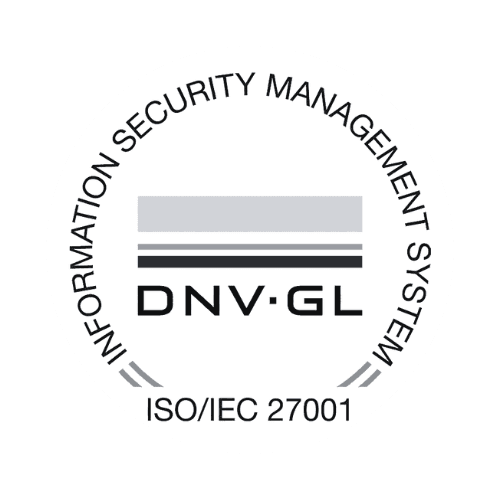Bądź pierwszy, który się dowie
Written by AI
Overcoming Security Concerns in SaaS for Businesses: Risk or Necessity?
Cloud computing has become one of the most popular IT solutions for businesses in recent years. In particular, Software as a Service (SaaS) has gained popularity as it enables companies to use software applications on demand without having to install them on their own servers. Despite the many benefits that SaaS offers, many businesses still have concerns about security. In this article, we will assess the risks of implementing SaaS solutions and discuss how businesses can align security and convenience when using SaaS.
Evaluating the Risks of Implementing SaaS Solutions
One of the main concerns when using SaaS is the security of corporate data. Companies are worried about the loss or theft of sensitive information, especially when stored on external servers. It is important for companies to assess the potential risks and take appropriate security measures to minimize these risks.
Some of the risks that can arise from implementing SaaS solutions are:
Data security vulnerabilities
Unauthorized access to data
Downtime in cloud services
Non-compliance with data protection regulations
It is important for companies to understand these risks and take appropriate measures to protect their data. This includes selecting trustworthy SaaS providers with robust security measures.
Another important aspect for companies to consider when evaluating SaaS risks is the scalability of the solutions. Since SaaS solutions are typically offered on a subscription basis, companies need to ensure that the chosen solution can keep up with their business growth. Lack of scalability can lead to performance issues and impact business efficiency.
Furthermore, companies should also keep legal aspects in mind when it comes to implementing SaaS solutions. It is important to ensure that contracts with SaaS providers are clear and transparent, especially in terms of liability and data protection regulations. A careful review of the contract terms can help minimize potential legal risks and strengthen the long-term relationship between the company and the SaaS provider.
Balancing Security and Convenience in SaaS Usage
While companies are committed to protecting their data, they also want to benefit from the advantages of using SaaS. Striking a good balance between security and convenience is crucial to fully leverage the benefits of SaaS solutions.
To achieve this balance, companies can take the following measures:
Thoroughly assess the security features of the SaaS provider
Develop and implement data security policies
Offer security training for employees
Regularly review and update security measures
By considering security as an integral part of their SaaS usage model, companies can pursue a balanced approach that protects their data without compromising the convenience of SaaS usage.
It is important to emphasize that the security of SaaS solutions depends not only on the providers, but also on a company's internal processes and policies. A comprehensive risk assessment should be conducted regularly to identify and address potential vulnerabilities.
Furthermore, companies can implement two-factor authentication to enhance the security of their SaaS usage. By combining something the user knows (e.g., password) and something the user possesses (e.g., mobile device), access security is improved.
Building Trust with Customers through Secure SaaS Practices
The security of customer data is of utmost importance, especially when it comes to SaaS for businesses. To gain customer trust and build long-term business relationships, it's crucial for companies to implement secure SaaS practices.
Some proven security practices for businesses using SaaS are:
Encryption of sensitive data
Two-factor authentication
Regular security audits
Use of firewalls and intrusion detection systems
By following these practices and transparently explaining the security measures to their customers, companies can strengthen trust in their SaaS applications and promote a positive image.
Another important aspect of SaaS security practices is continuous employee training. Companies should ensure that their employees receive regular training to be aware of the latest security threats and respond appropriately. This can help minimize security vulnerabilities and strengthen the overall security of the SaaS platform.
Furthermore, it is advisable for companies to have a clear policy for handling security incidents when it comes to implementing SaaS solutions. In the event of a security incident, it is important to act quickly to limit potential damage and not jeopardize customer trust. A well-thought-out and effective response strategy can show that companies take the security of their customers seriously and are ready to respond appropriately to threats.
Future Trends in SaaS Security: What to Expect
The security landscape is constantly evolving, and it's important for companies to be informed about future trends in SaaS security.
Some of the trends we can expect in the coming years are:
Increased use of artificial intelligence for detecting and defending against security threats
Greater integration of security features into SaaS platforms
Widespread use of blockchain technology to enhance data security
Stronger focus on data privacy and compliance
It's important for companies to stay updated on these trends and adjust their security strategies accordingly to keep up with the growing security requirements in the SaaS environment.
Another important aspect that will gain importance in the future is increased collaboration between companies and security service providers. By partnering with experts in the field of SaaS security, companies can benefit from specialized expertise and advanced technologies to effectively protect their data and systems.
In addition, employee training will become a central issue in SaaS security. Companies must ensure that their employees have the necessary awareness and skills to recognize security risks and respond appropriately. This can be achieved through targeted training programs and regular awareness campaigns.
Understanding Security Concerns in SaaS for Businesses
To overcome security concerns in SaaS for businesses, it is important to understand the specific challenges that companies face.
Some common security concerns in SaaS usage include:
Lack of control over data
Risk of outsourcing data to external providers
Uncertainty about the physical security of server locations
Non-compliance with industry-specific regulations
By understanding these concerns and taking appropriate measures to address them, companies can make their SaaS usage more secure and strengthen trust in the technology.
Another important aspect for companies to consider when using SaaS services is data encryption. By implementing strong encryption, sensitive information can be protected from unauthorized access. It is crucial for companies to regularly review and update encryption technologies to keep pace with evolving threats.
Furthermore, when choosing a SaaS provider, companies should ensure that they have certifications and compliance audits. Certifications such as ISO 27001 or SOC 2 demonstrate that the provider meets certain security standards and is regularly audited. By working with certified providers, companies can ensure that their data is in safe hands and compliance with legal regulations is guaranteed.
Importance of Data Security in SaaS Adoption
Data is the most valuable asset of a company, and its security is crucial, especially when using SaaS.
Some reasons why data security is important in SaaS implementation include:
Protecting confidential company information
Safeguarding customer data from theft or misuse
Minimizing the impact of data breaches
Reducing the risk of financial and legal harm
It is essential for companies to understand the importance of data security in the adoption of SaaS and take appropriate measures to protect their data.
Data security in the Software-as-a-Service (SaaS) environment is crucial as companies increasingly rely on cloud-based solutions to streamline their business processes. Storing sensitive data outside the company network can increase vulnerability to cyber attacks. Therefore, it is crucial for companies to implement robust security measures to ensure the confidentiality, integrity, and availability of their data.
Another important aspect of data security in SaaS usage is compliance with legal regulations and industry-specific standards. Companies must ensure that their data processing processes comply with applicable data protection regulations to avoid fines and legal consequences. This requires continuous monitoring and adjustment of security measures to keep pace with constantly changing threat landscapes.
Overcoming Common Security Challenges in SaaS
While security concerns exist in SaaS, there are proven methods for addressing these challenges.
Some ways to overcome common security challenges in SaaS are:
Implementing multi-factor authentication
Regularly patching and updating software
Implementing access controls on data
Conducting regular employee security awareness training
By taking these measures, companies can address common security challenges in SaaS and better protect their data.
Another important aspect in securing SaaS applications is the regular conduct of security audits and penetration tests. These tests help identify and address potential vulnerabilities early, before they can be exploited by attackers. By continuously reviewing security measures, companies can ensure that their SaaS platforms withstand the latest threats.
In addition to implementing technical security measures, it is crucial for companies to establish clear security policies for their employees. Training and awareness campaigns should be conducted regularly to raise awareness of security risks and promote compliance with security policies. By combining both technological and organizational measures, companies can effectively enhance the security of their SaaS implementations.
Addressing Compliance Issues in SaaS Deployments
Compliance with regulations and requirements is an important aspect of using SaaS for businesses. Companies must ensure that they meet all necessary legal requirements to avoid legal issues.
Some best practices for achieving compliance in SaaS deployments are:
Compliance with industry-specific regulations
Regular review of security practices
Documentation of security measures for audits
Collaboration with trusted providers that support compliance
By paying proper attention to compliance, companies can ensure their legal conformity and minimize the risk of legal issues.








